Find Help
More Items From Ergsy search
-
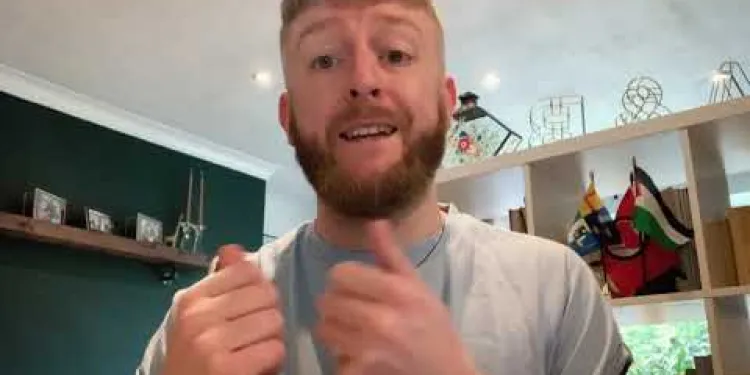
Living with Bipolar Disorder
Relevance: 100%
-

Bipolar disorder: Rod's story | NHS
Relevance: 91%
-
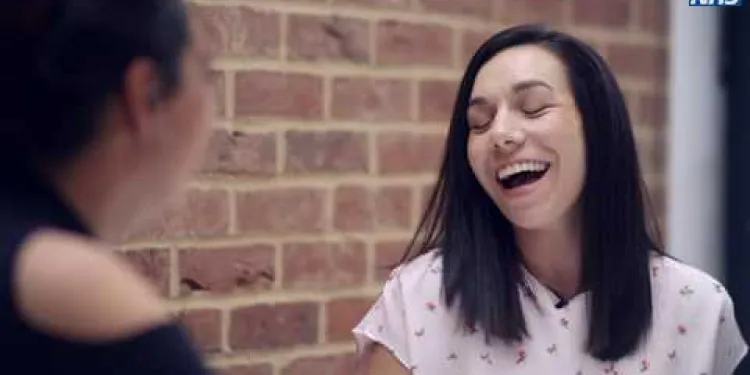
Short Films About Mental Health - Personality Disorders
Relevance: 39%
-
Can eating disorders occur with other mental health conditions?
Relevance: 37%
-
What is an Eating Disorder?
Relevance: 34%
-
What is an eating disorder?
Relevance: 34%
-
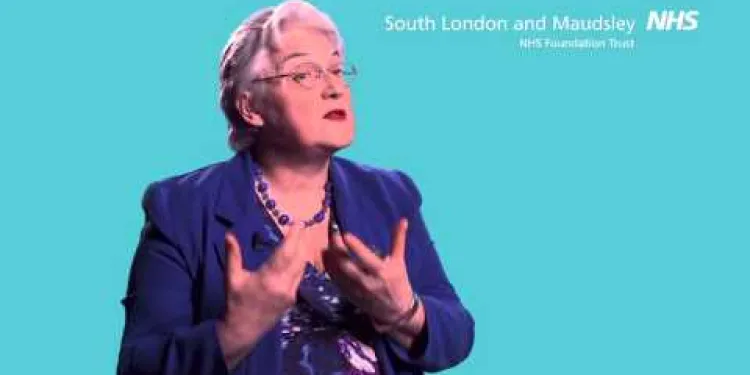
Eating disorders: treatment
Relevance: 34%
-
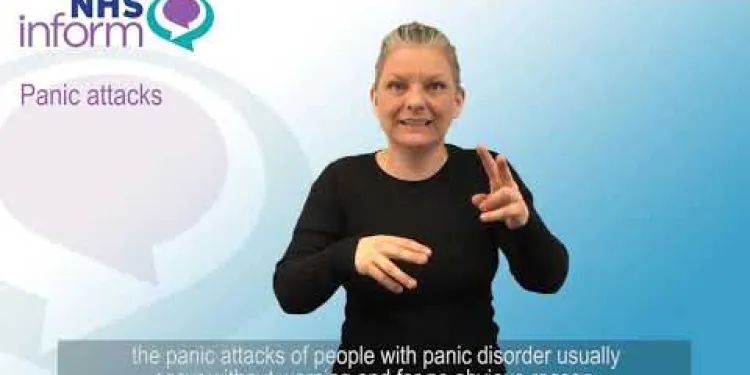
BSL - Diagnosis of panic disorder
Relevance: 33%
-
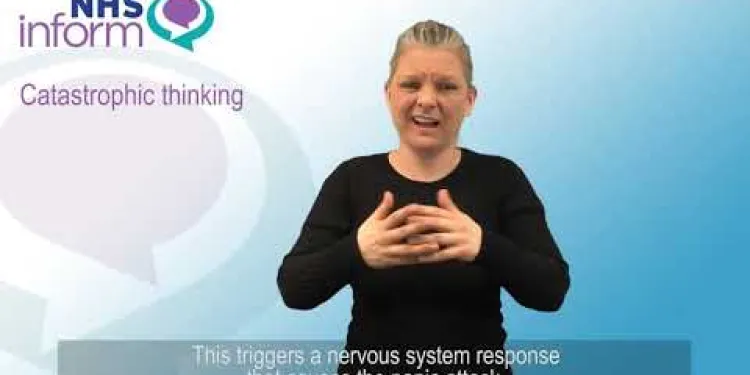
BSL - Causes of panic disorder
Relevance: 33%
-
Are there preventative measures for eating disorders?
Relevance: 33%
-
How are eating disorders diagnosed?
Relevance: 33%
-
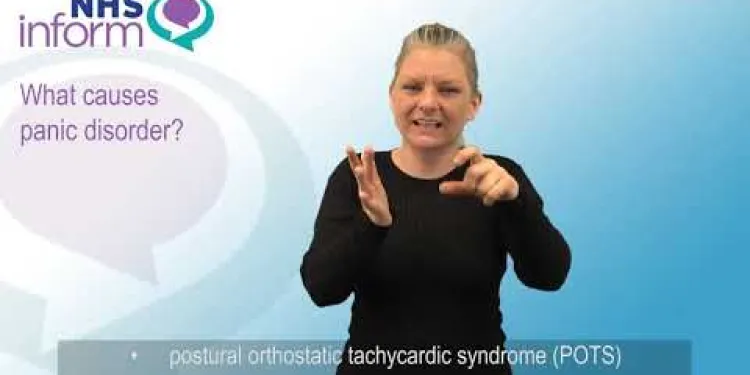
BSL - Introduction to panic disorder
Relevance: 33%
-
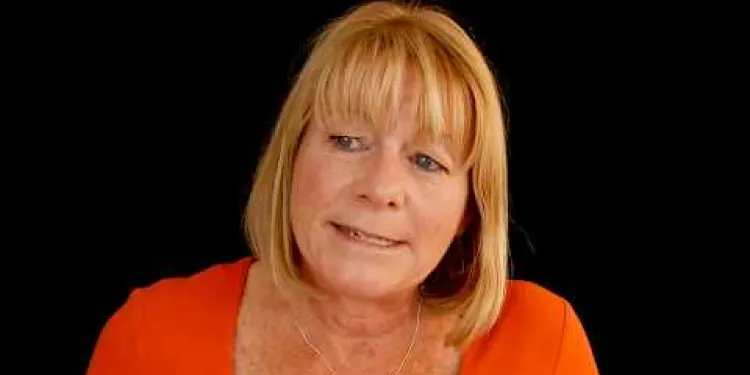
The treatment approach for an eating disorder
Relevance: 33%
-
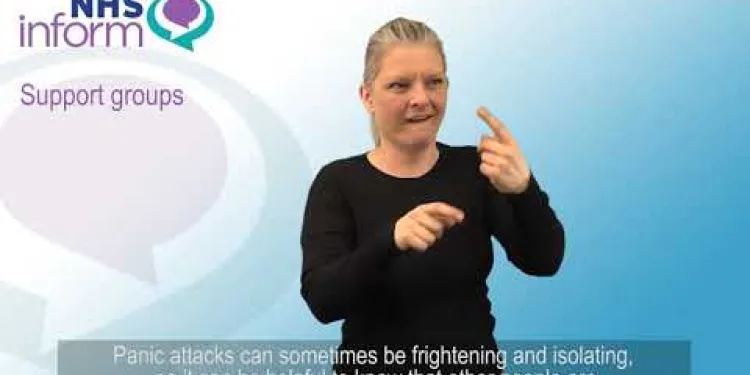
BSL - Treatment of panic disorder
Relevance: 33%
-
Can eating disorders be treated?
Relevance: 32%
-
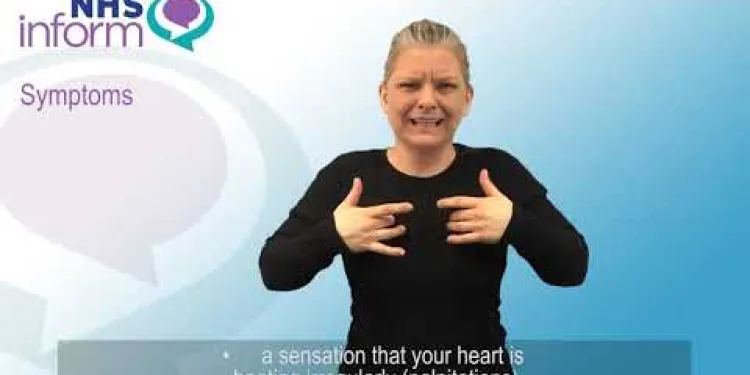
BSL - Symptoms of panic disorder
Relevance: 32%
-
Who is at risk for developing an eating disorder?
Relevance: 32%
-
Are eating disorders only about food?
Relevance: 31%
-

What is seasonal affective disorder - or SAD?
Relevance: 31%
-
What are the main types of eating disorders?
Relevance: 31%
-
What are common symptoms of eating disorders?
Relevance: 31%
-

Who is at risk of developing SAD?
Relevance: 31%
-
Is it possible to recover from an eating disorder?
Relevance: 31%
-
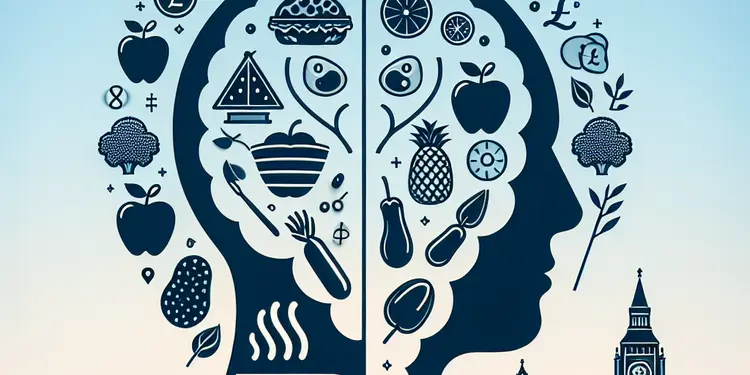
How do eating disorders affect mental health?
Relevance: 30%
-
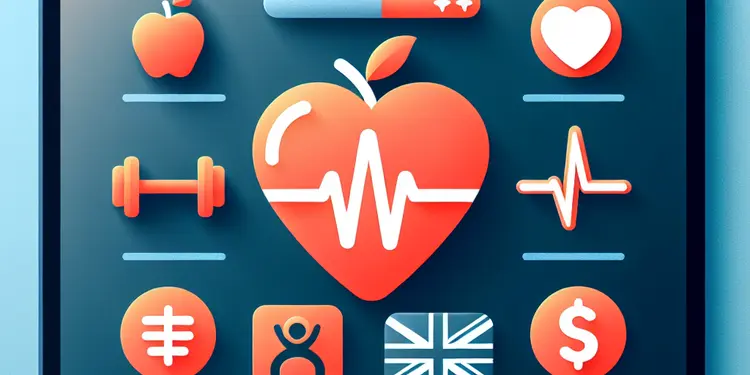
What is the impact of eating disorders on physical health?
Relevance: 30%
-

Jess Rann - Specialist Eating Disorders Dietitian
Relevance: 30%
-
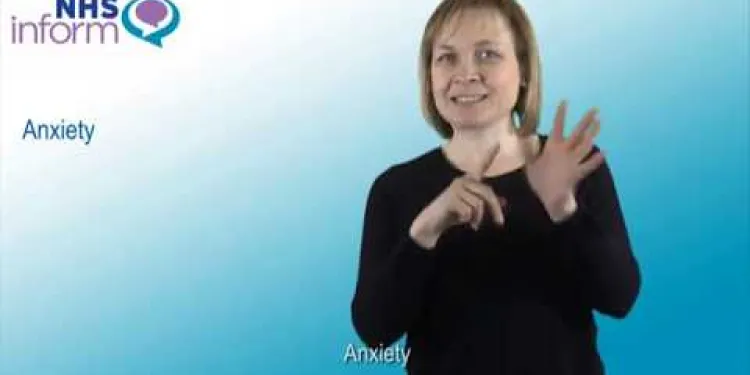
Generalised anxiety disorder (GAD)
Relevance: 30%
-
What is the role of therapy in treating eating disorders?
Relevance: 30%
-
What are the long-term effects of untreated eating disorders?
Relevance: 30%
-
What are some common myths about eating disorders?
Relevance: 29%
-
What are the early warning signs of an eating disorder?
Relevance: 29%
-

How common is Seasonal Affective Disorder?
Relevance: 29%
-
How can someone seek help for an eating disorder?
Relevance: 29%
-
What is body dysmorphia and how is it related to eating disorders?
Relevance: 29%
-

What is Seasonal Affective Disorder (SAD)?
Relevance: 28%
-

Steve Green tells his story on living with a hoarding disorder
Relevance: 28%
-
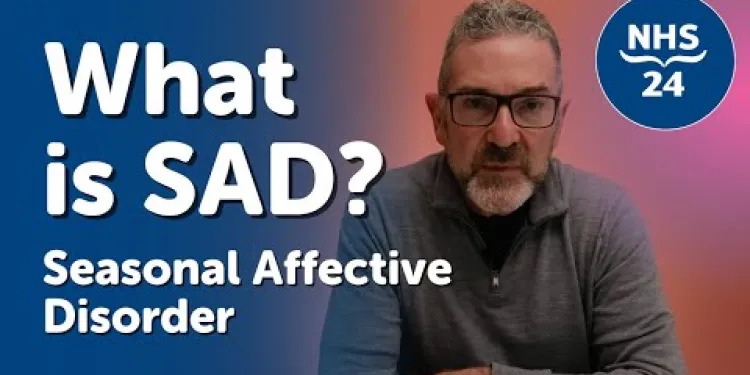
What is Seasonal Affective Disorder? (SAD)
Relevance: 27%
-
How can someone help a loved one with an eating disorder?
Relevance: 27%
-
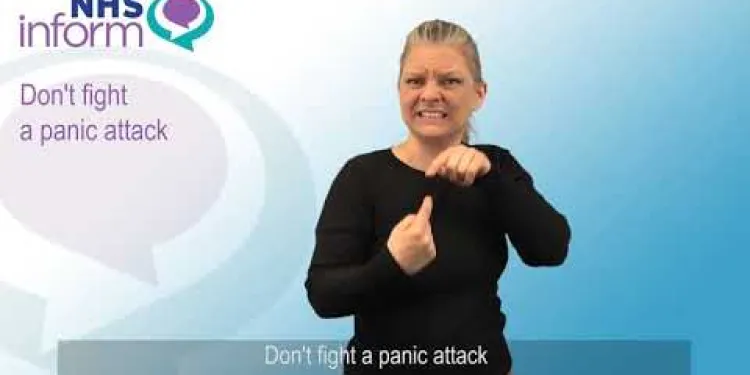
BSL - Panic disorder: things you can do to help yourself
Relevance: 27%
-
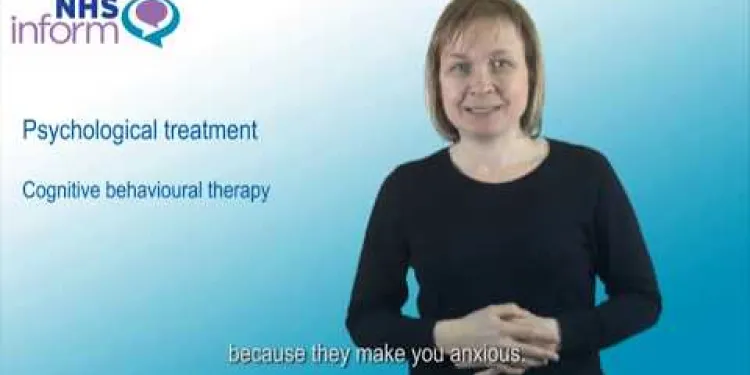
Treating generalised anxiety disorder (GAD)
Relevance: 27%
Bipolar Disorder: Rod's Story | NHS
Introduction to Bipolar Disorder
Bipolar disorder, also known as manic-depressive illness, is a mental health condition characterized by extreme mood swings. These include emotional highs (mania or hypomania) and lows (depression). It can affect a person's energy levels, activity, sleep, behaviour, and the ability to think clearly and make rational decisions. Treatment typically involves a combination of medication and psychotherapy. The NHS provides a wealth of resources for those dealing with bipolar disorder in the United Kingdom.Rod's Journey with Bipolar Disorder
Rod, a 45-year-old teacher from London, was diagnosed with bipolar disorder in his late twenties. Initially, it started with periods of overwhelming happiness and boundless energy, followed by episodes of severe depression. For years, Rod found it difficult to manage his mood swings and was often puzzled by the sudden shifts in his emotions.Seeking Help and Diagnosis
Rod reached a breaking point when his manic phases became disruptive at work, and his depressive episodes left him unable to function for days. His family persuaded him to see a GP, who then referred him to a mental health specialist. After a series of evaluations and discussions, Rod was diagnosed with bipolar disorder. Receiving a diagnosis was a pivotal moment for Rod, as it helped him understand his condition and the importance of seeking appropriate treatment.Treatment and Coping Strategies
Rod's treatment plan involved a combination of medication, including mood stabilizers and antidepressants, as well as regular psychotherapy sessions. The NHS provided Rod with access to a community mental health team that offered ongoing support. Learning coping strategies, such as maintaining a routine, engaging in regular physical activity, and practising mindfulness, became instrumental in managing his symptoms.Life Today
Years after his diagnosis, Rod leads a more stable and fulfilling life. He continues teaching and has become an advocate for mental health awareness in his community. Through the NHS's support, Rod has learned to manage his condition effectively and encourages others experiencing bipolar disorder to seek help and not face their struggles alone.Resources and Support
The NHS offers numerous resources for individuals with bipolar disorder, including information on symptoms, treatments, and local support groups. If you or someone you know is struggling with bipolar disorder, visiting the NHS website or speaking to a healthcare professional can provide much-needed guidance and support. This HTML layout provides a structured, informative piece on Rod's experience with bipolar disorder, highlighting important aspects of the condition, treatment, and resources.Bipolar Disorder: Rod's Story | NHS
What is Bipolar Disorder?
Bipolar disorder is when a person's mood goes up and down a lot. Sometimes they feel very happy and full of energy, which is called mania. Other times, they feel very sad, which is called depression. This can make it hard for them to do things like work or sleep. Doctors usually help with medicine and talking therapy. The NHS in the UK can help people with bipolar disorder.Rod's Story
Rod is a teacher in London. He is 45 years old. When Rod was in his late twenties, he found out he had bipolar disorder. He felt very happy and energetic sometimes, but then he felt very sad. For a long time, Rod didn't understand why his feelings changed so much.Getting Help
Rod's feelings started to make it hard for him to work. He didn't feel well for days. His family told him to see a doctor. The doctor sent him to a mental health specialist. This specialist told Rod he had bipolar disorder. Knowing this helped Rod understand why he felt the way he did and why getting help was important.How Rod Manages Bipolar Disorder
Rod takes medicine to help him feel more stable. He also talks to a therapist regularly. The NHS helps Rod with a team that supports him. Rod learned ways to help himself, like having a daily routine, exercising, and being mindful. These things make him feel better.Rod's Life Now
Now, Rod feels more stable. He still teaches and helps others learn about mental health. The NHS helped Rod learn to manage his bipolar disorder. He tells others with the disorder to get help and not be alone.Where to Get Help
The NHS has lots of information about bipolar disorder. They have details on symptoms, treatments, and support groups. If you need help with bipolar disorder, you can visit the NHS website or talk to a healthcare professional. They can give you the support you need.Frequently Asked Questions
What is bipolar disorder?
Bipolar disorder is a mental health condition characterized by extreme mood swings, including episodes of mania and depression.
What were Rod's initial symptoms of bipolar disorder?
Rod experienced severe mood swings, including periods of high energy, euphoria, and impulsiveness, followed by episodes of deep depression.
How was Rod diagnosed with bipolar disorder?
Rod was diagnosed after seeking help from healthcare professionals who conducted thorough evaluations, including discussions about his mood swings and their impact on his life.
What treatments did Rod receive for his bipolar disorder?
Rod received a combination of medication and therapy to manage his symptoms and stabilize his mood.
How has treatment helped Rod manage his bipolar disorder?
Treatment has helped Rod by providing stability and control over his mood swings, allowing him to lead a more balanced and fulfilling life.
What role did Rod's family and friends play in his recovery?
Rod's family and friends offered crucial support, understanding, and encouragement throughout his treatment and recovery process.
Can people with bipolar disorder lead a normal life?
Yes, with proper treatment and support, individuals with bipolar disorder can lead productive and fulfilling lives.
What should someone do if they suspect they have bipolar disorder?
If you suspect you have bipolar disorder, seek help from a healthcare professional for an evaluation and appropriate treatment.
What are some common triggers for bipolar disorder episodes?
Common triggers include stress, lack of sleep, substance abuse, and significant life changes.
How important is medication in managing bipolar disorder?
Medication is often crucial in managing bipolar disorder as it helps to stabilize mood and prevent extreme episodes.
What types of therapy are effective for bipolar disorder?
Cognitive-behavioral therapy (CBT) and other forms of psychotherapy can be effective in helping individuals manage their symptoms and develop coping strategies.
How can lifestyle changes help manage bipolar disorder?
Healthy lifestyle changes, such as regular exercise, a balanced diet, and stress management techniques, can support the overall treatment plan.
What advice does Rod offer to others with bipolar disorder?
Rod advises others to seek professional help, adhere to their treatment plans, and rely on their support network for assistance.
Are there support groups for people with bipolar disorder in the UK?
Yes, there are several support groups and organizations in the UK that offer resources and community for individuals with bipolar disorder.
How can someone support a loved one with bipolar disorder?
Providing emotional support, encouraging treatment adherence, and being understanding and patient are key ways to support a loved one with bipolar disorder.
What is bipolar disorder?
Bipolar disorder is an illness that makes people feel very happy and very sad at different times.
When someone is very happy, it is called a "high" or a "manic" mood. They may have lots of energy and feel more excited than usual.
When someone is very sad, it is called a "low" or a "depressive" mood. They might feel tired and not want to do things they usually enjoy.
People with bipolar disorder can get help from doctors and use medicine to feel better.
Talking to someone you trust can also help. There are pictures and apps that explain things more simply too.
Bipolar disorder is an illness that affects how you feel. You might feel very happy and full of energy sometimes. Other times, you might feel very sad and tired. These feelings can change a lot.
What signs did Rod show when he first got bipolar disorder?
Bipolar disorder can make people feel very happy or very sad. When Rod first got bipolar disorder, he might have acted differently. For example, he could have been super happy and had lots of energy, or he could have felt really sad and tired.
If you want to understand better, ask a friend or use tools like audiobooks or videos to help you learn more.
Rod had big changes in his mood. Sometimes he felt really happy and full of energy. He wanted to do things quickly without thinking. Other times, he felt very sad and didn't want to do anything.
How did Rod find out he has bipolar disorder?
Rod found out he has bipolar disorder when he went to a doctor. The doctor asked Rod some questions and listened to him talk about his feelings. Rod told the doctor about times when he felt very, very happy and had lots of energy. He also talked about times when he felt very sad and tired. The doctor looked at how Rod was feeling over time and told him he has bipolar disorder.
If you want to understand more about feelings, talking to an adult or a doctor can help. You can also use tools like picture cards or apps with simple words and pictures to talk about feelings.
Rod found out what was wrong after he talked to doctors. The doctors asked him a lot of questions. They talked about how Rod felt happy and sad a lot, and how this made his life hard.
What help did Rod get for his bipolar disorder?
Bipolar disorder is an illness that makes people feel very happy and then very sad. Rod got help from doctors.
Here are some ways Rod got help:
- He talked to a doctor about his feelings.
- He took medicine to help his mood.
- He went to therapy to learn how to feel better.
- He did exercises, like walking or playing sports.
- He relaxed by listening to music or drawing.
If you feel like Rod, ask a grown-up to help you talk to a doctor.
Rod got some medicine and talked to a therapist. This helped him feel better and keep his mood steady.
How has treatment helped Rod manage his bipolar disorder?
How has treatment helped Rod with his bipolar disorder?
Bipolar disorder is when feelings go up and down a lot.
Treatment helps Rod feel better.
- Medicine can help make moods more steady.
- Talking to a doctor or counselor can help with feelings.
- Support groups can help by talking to others with similar feelings.
Rod feels more in control now.
Tools that help Rod:
- A schedule can help keep daily life the same.
- Writing a diary can help Rod see his feelings.
- Apps can remind Rod to take his medicine.
Treatment has helped Rod feel more steady and in control of his feelings. This makes his life better and happier.
How did Rod's family and friends help him get better?
Rod's family and friends helped him a lot when he was getting better. They understood him and cheered him on.
Can people with bipolar disorder live a normal life?
Yes, people with bipolar disorder can live a normal life.
Bipolar disorder is a health problem that affects moods. People can feel very happy or very sad.
With help, people can feel better and have a normal life. Here are some ways that can help:
- Talking to a doctor or therapist. They can give support and advice.
- Taking medicine if the doctor says it helps.
- Having a daily routine to help feel calm.
- Getting support from family and friends.
It is important to ask for help when needed.
Yes, people with bipolar disorder can have happy and successful lives with the right help and care.
What to Do if You Think You Have Bipolar Disorder
If you think you might have bipolar disorder, here are some steps you can take:
- Talk to a Doctor: A doctor can help you. They can check how you are feeling and tell you what to do next.
- Keep a Mood Diary: Write down how you feel each day. This can help you and your doctor understand more about your feelings.
- Ask for Help: Talk to someone you trust, like a family member or friend, about how you feel.
- Learn More: Read simple information about bipolar disorder to understand it better.
- Use Support: Draw pictures or use apps that help you say how you feel.
Remember, it's okay to ask for help. You are not alone.
If you think you might have bipolar disorder, it's important to talk to a doctor. They can help check what's going on and give you the right care.
What can make bipolar disorder episodes happen?
Bipolar disorder is a health problem that can make people feel very happy or very sad at different times.
Things that can cause these mood changes are called triggers. Here are some common triggers:
- Stress: Big changes or tough times can make mood swings happen.
- Lack of sleep: Not sleeping enough can affect how you feel.
- Medications: Some medicines can change your mood.
- Alcohol and drugs: These can make mood swings worse.
- Changes in routine: Sudden changes in daily habits can be triggers.
It can be helpful to:
- Keep a regular daily schedule.
- Get enough sleep each night.
- Talk to a doctor about feelings and medicines.
Family and friends can also help by supporting and understanding.
Things that can make it happen: feeling stressed, not sleeping enough, using drugs or alcohol, and big changes in your life.
How important is medicine for helping with bipolar disorder?
Medicine can help people with bipolar disorder feel better. It can stop big mood changes. It is important to take the right medicine every day. Talk to your doctor about what works best for you.
Here are some ways to help remember your medicine:
- Use a pill box to keep track of your pills.
- Set an alarm to remind you when to take your medicine.
- Ask a family member or friend to help you remember.
Medicine is important. It helps people with bipolar disorder feel better. The medicine stops big mood changes and keeps them feeling okay.
What kinds of help work for bipolar disorder?
Bipolar disorder is a condition that affects mood. It can make mood go up and down a lot. It is important to get the right help.
Here are some types of help that can work for bipolar disorder:
- Talking Therapy: This is when you talk to someone who is trained to help. They can help you understand your feelings and find ways to feel better.
- Medicine: Some people take medicine to help keep their mood stable. A doctor can tell you if this is right for you.
- Support Groups: Being with people who have the same condition can be helpful. You can share stories and tips with each other.
If you have bipolar disorder, you are not alone. There are people who can help you. Ask a doctor or a trusted adult for more information.
Talking therapy like CBT can really help people feel better. It teaches them new skills to handle problems and feel less upset.
How can changes in what you do every day help with bipolar disorder?
To stay healthy, you can do three things: move your body, eat good food, and stay calm.
Here are some tips to help you:
- Exercise: Go for a walk or play outside every day. Moving helps your body stay strong.
- Eat Well: Try to eat fruits, vegetables, and other healthy foods. They are good for you.
- Stay Calm: Take deep breaths, listen to music, or talk to someone you trust if you feel worried.
What tips does Rod give to people with bipolar disorder?
Rod wants to help people with bipolar disorder. Here are his tips:
- Talk to a doctor. They can help you feel better.
- Take your medicine every day. It can help your mood.
- Tell your family and friends how you feel. They can support you.
- Write in a diary. This helps you understand your feelings.
- Join a support group. You can meet people who understand you.
Rod believes these tips can help you live a happy life.
Rod tells people to get help from a doctor or therapist. He says to follow what the doctor or therapist says and to ask friends and family for help when needed.
Can people with bipolar disorder get help in the UK?
Yes, there are groups that help people with bipolar disorder.
These groups are safe places to share feelings, talk to others, and get support.
It can help to talk to people who understand what you are going through.
You can ask a doctor to help you find a group nearby.
There are also websites and phone numbers that can help you find support groups.
Yes, there are places in the UK that help people with bipolar disorder. These places give support and help people meet others like them.
How to Help a Loved One with Bipolar Disorder
If someone you love has bipolar disorder, you can help them in these ways:
- Listen to them. Let them talk about how they feel.
- Learn about bipolar disorder. Understanding it can help you support them better.
- Be patient. Sometimes they may feel very happy, and other times very sad.
- Help them remember to take their medicine. This can help them feel better.
- Encourage them to talk to a doctor or counselor.
- Spend time doing fun things together. It can lift their mood.
- Stay calm and be a good friend, even when things are hard.
You can also talk to a doctor to learn more ways to help.
Here are ways to help someone with bipolar disorder:
- Be kind and listen to them.
- Help them remember to take their medicine.
- Be patient and understanding with them.
It might also help to use simple tools like setting reminders or having a calendar. This can make sure they stay on track with their medicine and appointments.
Useful Links
This website offers general information and is not a substitute for professional advice.
Always seek guidance from qualified professionals.
If you have any medical concerns or need urgent help, contact a healthcare professional or emergency services immediately.
- Ergsy carfully checks the information in the videos we provide here.
- Videos shown by Youtube after a video has completed, have NOT been reviewed by ERGSY.
- To view, click the arrow in centre of video.
- Most of the videos you find here will have subtitles and/or closed captions available.
- You may need to turn these on, and choose your preferred language.
- Go to the video you'd like to watch.
- If closed captions (CC) are available, settings will be visible on the bottom right of the video player.
- To turn on Captions, click settings .
- To turn off Captions, click settings again.
More Items From Ergsy search
-

Living with Bipolar Disorder
Relevance: 100%
-

Bipolar disorder: Rod's story | NHS
Relevance: 91%
-

Short Films About Mental Health - Personality Disorders
Relevance: 39%
-
Can eating disorders occur with other mental health conditions?
Relevance: 37%
-
What is an Eating Disorder?
Relevance: 34%
-
What is an eating disorder?
Relevance: 34%
-

Eating disorders: treatment
Relevance: 34%
-

BSL - Diagnosis of panic disorder
Relevance: 33%
-

BSL - Causes of panic disorder
Relevance: 33%
-
Are there preventative measures for eating disorders?
Relevance: 33%
-
How are eating disorders diagnosed?
Relevance: 33%
-

BSL - Introduction to panic disorder
Relevance: 33%
-

The treatment approach for an eating disorder
Relevance: 33%
-

BSL - Treatment of panic disorder
Relevance: 33%
-
Can eating disorders be treated?
Relevance: 32%
-

BSL - Symptoms of panic disorder
Relevance: 32%
-
Who is at risk for developing an eating disorder?
Relevance: 32%
-
Are eating disorders only about food?
Relevance: 31%
-

What is seasonal affective disorder - or SAD?
Relevance: 31%
-
What are the main types of eating disorders?
Relevance: 31%
-
What are common symptoms of eating disorders?
Relevance: 31%
-

Who is at risk of developing SAD?
Relevance: 31%
-
Is it possible to recover from an eating disorder?
Relevance: 31%
-

How do eating disorders affect mental health?
Relevance: 30%
-

What is the impact of eating disorders on physical health?
Relevance: 30%
-

Jess Rann - Specialist Eating Disorders Dietitian
Relevance: 30%
-

Generalised anxiety disorder (GAD)
Relevance: 30%
-
What is the role of therapy in treating eating disorders?
Relevance: 30%
-
What are the long-term effects of untreated eating disorders?
Relevance: 30%
-
What are some common myths about eating disorders?
Relevance: 29%
-
What are the early warning signs of an eating disorder?
Relevance: 29%
-

How common is Seasonal Affective Disorder?
Relevance: 29%
-
How can someone seek help for an eating disorder?
Relevance: 29%
-
What is body dysmorphia and how is it related to eating disorders?
Relevance: 29%
-

What is Seasonal Affective Disorder (SAD)?
Relevance: 28%
-

Steve Green tells his story on living with a hoarding disorder
Relevance: 28%
-

What is Seasonal Affective Disorder? (SAD)
Relevance: 27%
-
How can someone help a loved one with an eating disorder?
Relevance: 27%
-

BSL - Panic disorder: things you can do to help yourself
Relevance: 27%
-

Treating generalised anxiety disorder (GAD)
Relevance: 27%


